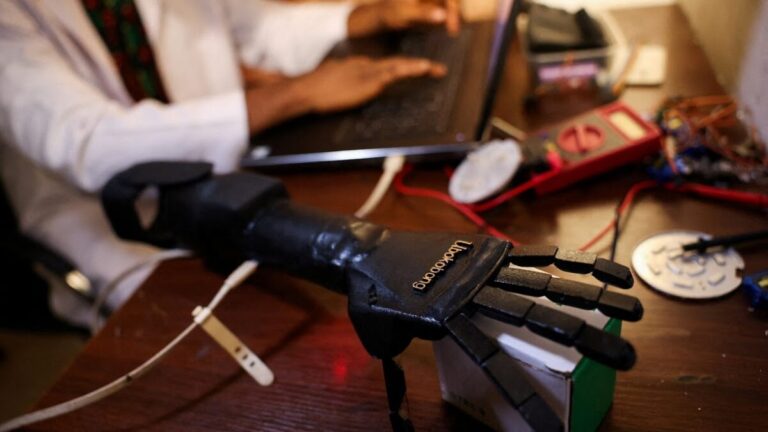In a country where prosthetics are often either unavailable or unaffordable, a breakthrough from Uyo, Akwa Ibom, is offering new hope. Nigerian firm Immortal Cosmetic Art has developed the Ubokobong Bionic Arm—a hyper-real prosthetic designed to both function and blend seamlessly with African skin tones.
Unlike most static prosthetics on the local market, the Ubokobong Arm operates with electromyography (EMG) signals, responding to brain activity to move like a real hand. The innovation has already attracted attention not only across Nigeria but also in the United States, Britain, Australia, and Ghana.
“They are not just static, but functional and human-like. The most beautiful part is that it comes in black skin colour,” said John Amanam, CEO of Immortal Cosmetic Art and a former movie effects artist turned prosthetics pioneer.
The technology was born out of personal tragedy. Six years ago, Amanam’s younger brother, Ubokobong, lost his fingers to fireworks. Struggling to find prosthetics that matched his skin, the family turned grief into innovation. What began as purely aesthetic prosthetic designs has now evolved into a fully functional, brain-controlled bionic arm after three years of intense research.
For people like Gift Usen, a 25-year-old cosmetologist born with only one fully developed hand, the launch cannot come soon enough.
“When we are launching, it will be my greatest happiness ever. Finally, I’ll have two hands,” she said.
Immortal Cosmetic Art says it hopes to partner with the government and NGOs to make the device affordable for ordinary Nigerians, bridging a long-standing gap in accessibility to advanced prosthetics.
Built by Africans for Africans, the Ubokobong Bionic Arm marks a turning point—not just for amputees, but for Nigeria’s role in the global prosthetics industry.

